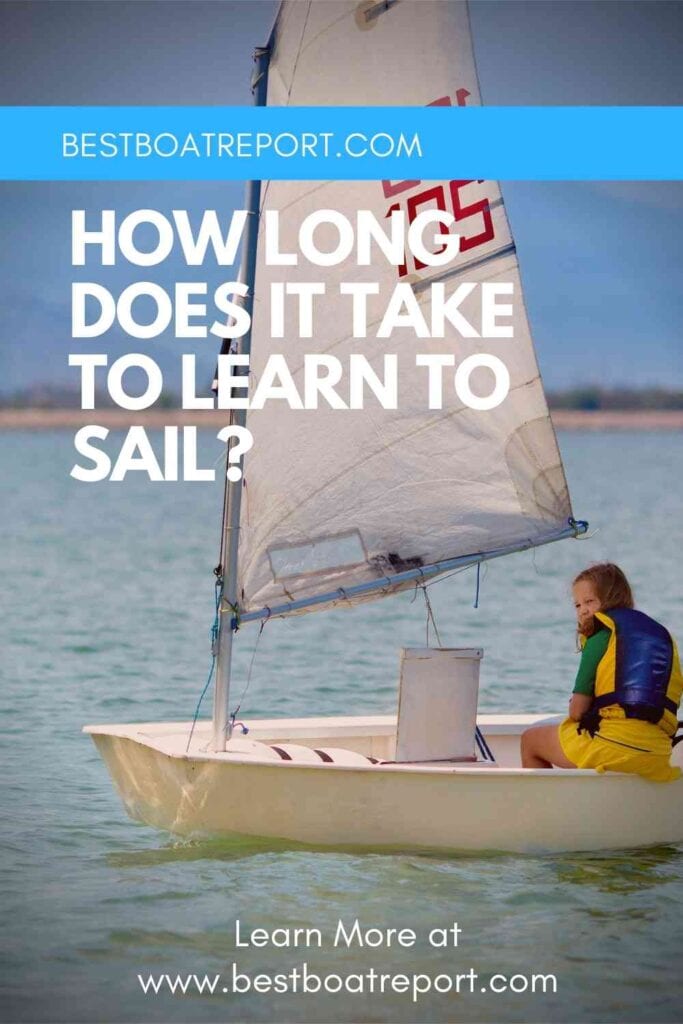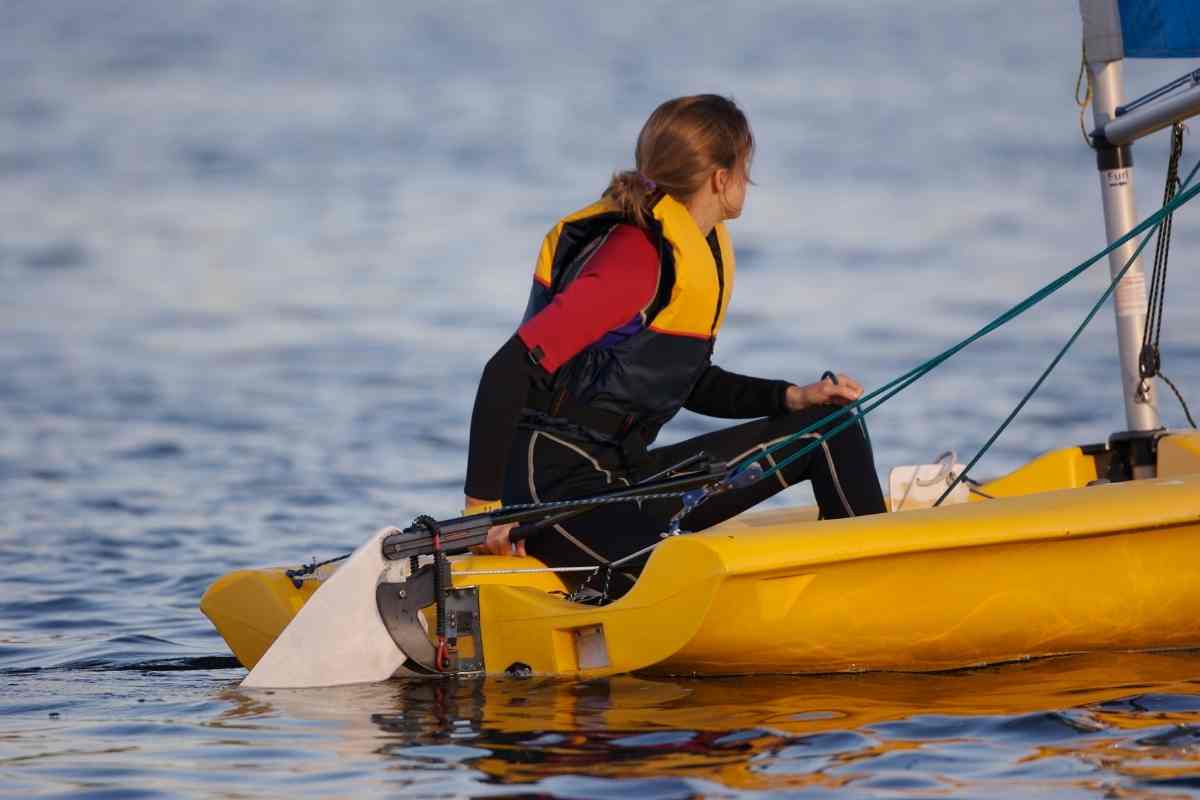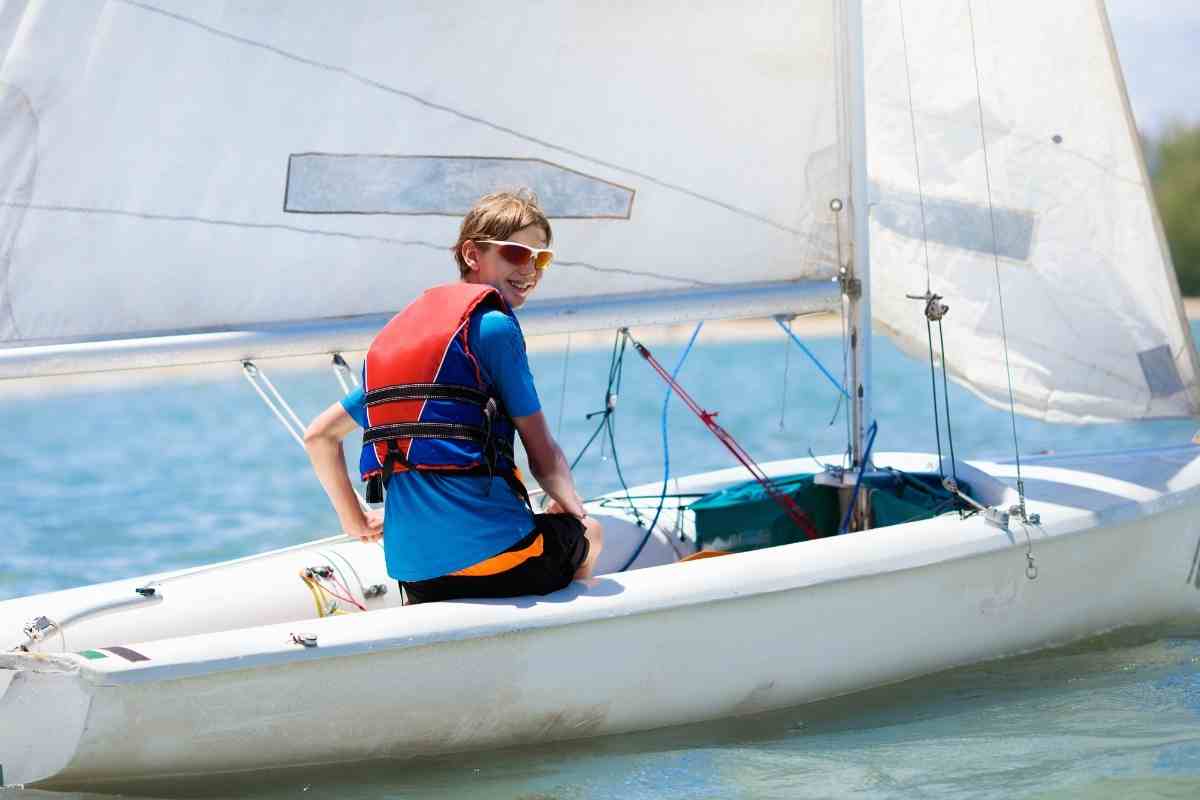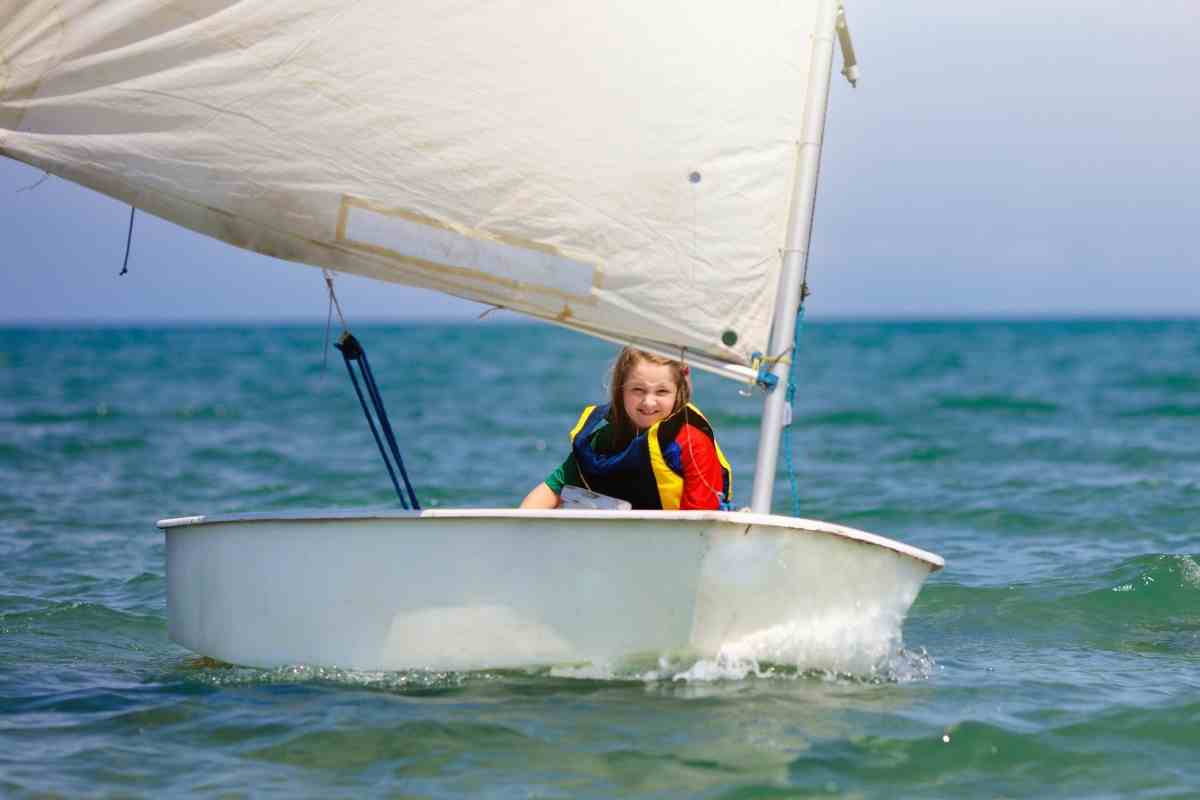How Long Does It Take To Learn To Sail?
Ever wondered about the time commitment required to learn to sail? This article sheds light on the journey, helping you gauge the duration needed to master sailing. Besides, we offer tips to expedite the learning curve, bringing you closer to the thrilling experience of maneuvering a sailboat across the open seas. Your quest for maritime adventure just got a clear roadmap; dive in to discover how you can turn the tide in your favor.

How Long Does It Take To Learn To Sail?
It can take anywhere from a couple of weeks to several months for you to feel confident in your sailing skills, depending on the boat you’re learning in, how much time you can dedicate to learning initially, your experience, who’s teaching you, and how risk-averse you are.
Important Variables
The experience of learning to sail is different for everybody. Depending on a number of variables, it may take you only a few hours to grasp the basics or it may take several weeks.
No sailor should feel that they are competent at sailing until they have encountered many different situations and sailed in all different conditions.
That said, many people do learn enough sailing fundamentals to be able to single-hand themselves very quickly and continue their adventures learning to sail on their own.
The Boat
A simple sailing dinghy will likely be easier for you to learn to master than a 40 foot sailboat. Even among small sailing skiffs, some may be easier to master than others.
It is not just the boat itself that is relevant. The way in which the boat fits your body type and how easy it is for you to balance and avoid capsizing also matters.
Little boats that are very responsive are easier to learn to sail than larger boats that take longer to respond.
As you get to know the boat and develop instincts about how it feels in particular situations, you’ll find it much easier to learn on a larger boat.
Larger boats that don’t respond as quickly can be confusing, making it harder for you to realize how your handling actions affect what the boat is doing.
Simpler rigging can also be much easier for new sailors to learn than more complex rigging.
The more complicated the lines and sails that you need to control, the harder it might be for you to understand what you need to do to control the boat.

Your Experience
Don’t be too quick to disregard the importance of any experience you might have had on the water.
Even having had a small canoe or having played around in a raft can help you better understand how water, wind, and waves can affect the physics of how your sailboat moves through the water.
If you have very little experience with the water, you will need to learn a range of skills related to understanding the way water and wind affect the boat.
If you have any experience sailing in the past, you are very likely to find it coming into play in ways you wouldn’t have anticipated.
Do not be too disheartened if you find that you are having a harder time learning to sail than some of your friends who have more experience. Understanding how to sail is a personal experience that cannot be rushed.
The Time You Put In
If you are sailing only a few weekends a month, it will take more time cumulatively for you to learn to sail than if you put more time in initially.
Sailing is the sort of skill that becomes more comfortable and familiar the more you do it in a stretch.
Understanding the influence of wind and waves and how your boat handles them takes a muscle memory that can only be built when sufficient time is spent on the boat in a stretch.
If you want to sail as well as possible as soon as you can, it’s a good idea to put in some time at the beginning to get yourself well-acquainted with it from the beginning.

Your Teacher
If you are trying to learn from how-to books and YouTube videos, you are likely to feel like sailing is impossible before you ever set foot in a sailboat.
Sailing has a way of sounding much more complicated than it really is.
There’s nothing wrong with reading good books and high-quality online content about sailing before you start trying your luck in a real boat, but be very careful that what you read doesn’t overwhelm you or even make you reconsider whether you want to give sailing a shot.
Books and videos are unlikely to be as effective at teaching you as just getting in the boat and trying.
However, the best teacher is, without a doubt, an experienced sailor. If you can find somebody who already understands sailing and is willing to teach you, you have found your best chance of learning to sail quickly and easily.
Nothing beats an experienced sailor when it comes to teaching you how to sail.

Your Level of Risk Aversion
The best sailors are generally not the least or the most risk-averse people.
People who are too concerned about taking risks may not take the chances that they need to master the skills they need to be great sailors.
On the other hand, people without sufficient risk aversion are not careful enough to truly grasp the skills that they need to be good sailors.
They take too many risks without fully thinking through the consequences, making serious problems more likely.
There is certainly a degree to which we are all born with a level of risk aversion that we keep throughout our lives, but we can also work to change our own risk aversion.
If you are the kind of person who absolutely cannot stand risk, sailing is an opportunity for you to become more comfortable with risk-taking so that you can be a successful sailor without feeling constant anxiety.
If you tend to be easygoing and unworried, consider how dangerous it can be when things go wrong on your sailing trip and begin working to get better at planning for things that may go wrong.
For most people, the struggle is harder when you are too risk-averse.
By its nature, sailing requires some mistakes. There is simply no way you could possibly plan for every eventuality that could come up, so you need to learn to be comfortable with safeguarding what you can and allowing the chips to fall where they will sometimes.

Learning to have a healthy relationship with risk is one of the many valuable lessons that sailing has to teach you, but keep in mind that if you know that you tend to be a risk-averse person, you have more struggle to overcome
When Have You Mastered Sailing?
Sailing is not necessarily the kind of skill that makes it clear when you have achieved mastery. Sometimes it can be hard to know when you really have learned. Sailing well requires lifelong learning.
If you ever feel completely confident that you are an excellent sailor and have total control over your boat, get ready to be brought down a peg. Sailing never leaves any sailor too confident for too long.
Every sailor has to find a point at which they are ready to go off on their own or begin taking greater risks in their sailing.
Only you can know when it is time for you to feel greater confidence as a sailor. However, there are a few key skills to have mastered before you are ready to call yourself a sailor:
- You have handled your boat well in inclement conditions. Few sailors find it very difficult to handle their boat in ideal conditions. The challenge comes when conditions are not as favorable. Before you can feel confident in your skills as a sailor, you need to have handled your boat in rough and stormy seas and difficult winds.
- You are confident in your navigation. Sailing isn’t just about handling the boat. Being able to get where you are going and plan out a safe route is of equal importance. You should be able to navigate very well using tools like the GPS and be able to program routes into your autopilot or wind vane. You should also be able to use a compass when necessary in case your GPS fails and to back up your GPS routes.
- You can drop sails in a hurry. It probably won’t ever matter how long it takes you to put up your sails, so if you want to take some time to hone that skill, go for it. However, you may be in a dangerous situation if you cannot rapidly drop your sails. Inclement weather can come up incredibly quickly. If you suddenly have more sail up than you can handle, you face the risk of ruining your sails or even capsizing.

Enjoy Learning to Sail
However long it takes you to learn to sail, be sure that you are appreciating every second. You will never get to be a new sailor again.
While there are absolute frustrations in learning the skill, you will never forget the lessons you learned or your experiences during this time. Be sure that you take time to appreciate just how much fun it can be to learn sailing for the first time.
